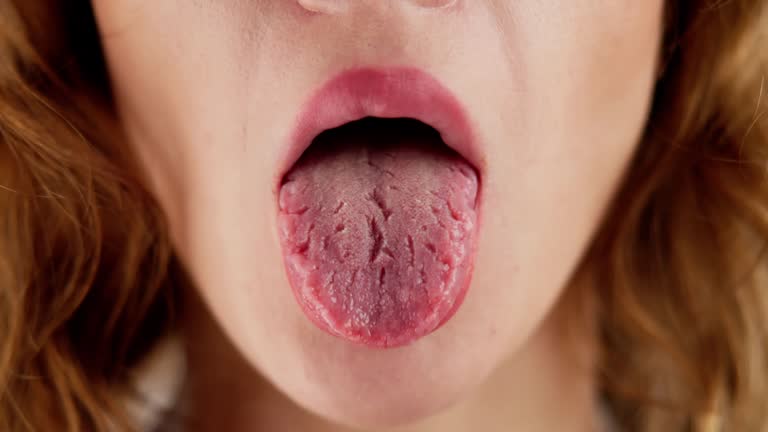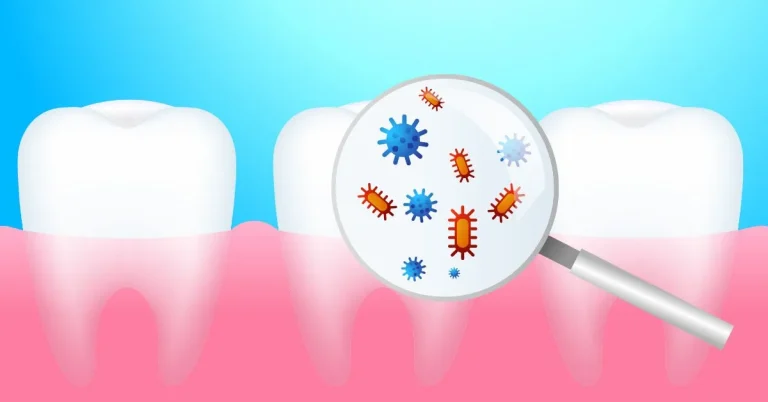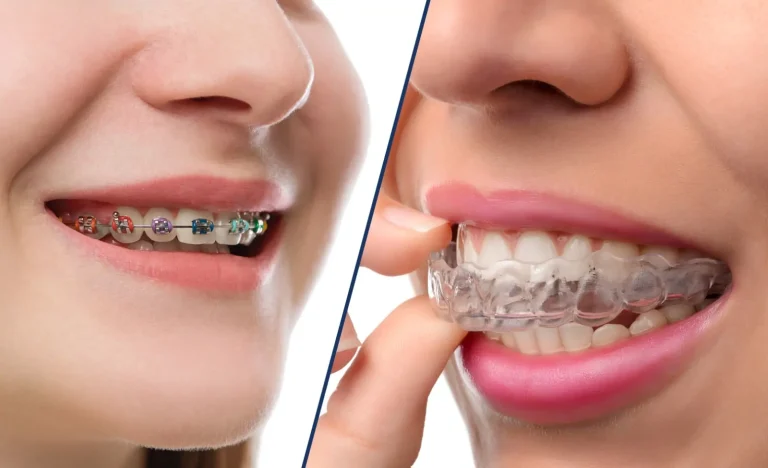The Hidden Connection Between Stress and Oral Health
Let’s be real—life can be stressful. Whether it’s work deadlines, family responsibilities, or just the daily grind, stress has a way of creeping into every corner of our lives. But here’s something you might not have thought about: stress doesn’t just mess with your mind or keep you up at night—it can also wreak havoc on your oral health. Yep, your teeth and gums are more connected to your stress levels than you might realize.
Think about it. Have you ever caught yourself clenching your jaw during a tense moment? Or maybe you’ve woken up with a sore jaw and a headache, wondering if you’ve been grinding your teeth in your sleep. These are just a couple of ways stress can show up in your mouth. But it doesn’t stop there. Stress can also weaken your immune system, making it harder for your body to fight off gum disease or oral infections.
The good news? You’re not stuck with stress-related oral health issues. By understanding how stress affects your teeth and gums—and learning how to manage it—you can take steps to protect your smile. So, grab a cup of coffee (or tea, if that’s your thing), and let’s dive into the surprising ways stress impacts your oral health—and what you can do about it. Trust me, your teeth will thank you.
How Stress Takes a Toll on Your Teeth and Gums
Alright, let’s get into the nitty-gritty. Stress doesn’t just make you feel frazzled—it can literally leave its mark on your teeth and gums. Here’s how:
Teeth Grinding (Bruxism)
Ever wake up with a sore jaw or a dull headache? You might be grinding your teeth at night, and stress is often the culprit. This condition, called bruxism, is like your mouth’s way of working out its frustrations while you sleep. But instead of burning calories, you’re wearing down your enamel, chipping teeth, or even causing jaw pain. It’s like your teeth are paying the price for your stressful day.
Gum Disease
Here’s where things get a little more serious. When you’re stressed, your body produces more cortisol—the “stress hormone.” Over time, high cortisol levels can weaken your immune system, making it harder for your body to fight off bacteria. And guess where bacteria love to hang out? Your gums. This can lead to gingivitis (early gum disease) or even periodontitis (a more severe form of gum disease). Not exactly the kind of party you want happening in your mouth.
Canker Sores and Dry Mouth
Stress can also bring along some uninvited guests, like canker sores or dry mouth. Canker sores are those annoying little ulcers that pop up inside your mouth, and while they’re not contagious, they can be super uncomfortable. Dry mouth, on the other hand, happens when stress reduces saliva production. And since saliva is your mouth’s natural defense against bacteria, less of it means a higher risk of cavities and bad breath.
So, what’s the takeaway here? Stress doesn’t just mess with your head—it can seriously mess with your mouth, too. But don’t worry, we’re not just here to point out the problems. Stick around, because next up, we’ll talk about how to tackle stress and keep your smile healthy. Trust me, it’s easier than you think.
The Science Behind Stress and Oral Infections
Okay, let’s geek out for a second. Ever wonder why stress seems to make everything worse, including your oral health? It all comes down to your body’s stress response and how it affects your immune system.
When you’re stressed, your body goes into “fight or flight” mode, releasing a flood of hormones like cortisol. Now, cortisol is great in small doses—it helps you handle short-term challenges. But when stress becomes chronic, cortisol levels stay high, and that’s where the trouble starts.
Stress and Your Immune System
High cortisol levels can weaken your immune system, making it harder for your body to fight off infections. And guess what? Your mouth is home to millions of bacteria—some good, some not so good. When your immune system isn’t firing on all cylinders, those harmful bacteria can take over, leading to issues like gingivitis or periodontitis.
Think of it like this: your immune system is the bouncer at a club, keeping troublemakers out. But when stress weakens the bouncer, the troublemakers (aka bacteria) sneak in and start causing chaos.
Stress and Inflammation
Stress doesn’t just weaken your immune system—it also triggers inflammation. Inflammation is your body’s way of responding to injury or infection, but when it sticks around too long, it can do more harm than good. In your mouth, chronic inflammation can damage gum tissue and even lead to bone loss around your teeth.
Real-Life Examples
Let’s make this relatable. Ever notice how some people get cold sores or canker sores during finals week or a big project at work? That’s stress lowering their immune defenses and giving viruses or bacteria a chance to strike. Or maybe you’ve heard someone say their gums bleed more when they’re stressed—that’s inflammation and weakened immunity at play.
The bottom line? Stress doesn’t just mess with your mood—it messes with your mouth, too. But here’s the good news: by managing stress, you can give your immune system a fighting chance and keep your oral health in check. Up next, we’ll talk about practical ways to do just that. Stay tuned!
Stress Management Techniques for a Healthier Smile
Alright, now that we know how stress can mess with your oral health, let’s talk about how to fight back. The good news? Managing stress doesn’t have to be complicated or time-consuming. Here are some simple, effective strategies to keep your stress levels—and your oral health—in check.
Mindfulness and Relaxation
Sometimes, the best way to tackle stress is to hit the pause button. Practices like meditation, deep breathing, or even just taking a few minutes to sit quietly can work wonders. For example, try this: close your eyes, take a deep breath in for four counts, hold it for four counts, and exhale for four counts. Repeat a few times. It’s like a mini reset button for your brain—and your jaw muscles will thank you, too.
Get Moving
Exercise isn’t just great for your body—it’s a powerhouse for your mental health. When you work out, your body releases endorphins, those feel-good chemicals that help combat stress. Plus, physical activity can reduce cortisol levels, giving your immune system a boost. You don’t need to run a marathon—even a brisk walk or a quick yoga session can make a difference.
Healthy Habits for a Healthier Mouth
What you do (or don’t do) can have a big impact on both your stress levels and your oral health. Here are a few habits to keep in mind:
- Eat a Balanced Diet: Foods rich in vitamins and minerals, like leafy greens, nuts, and dairy, can strengthen your teeth and gums.
- Stay Hydrated: Drinking water helps wash away bacteria and keeps your mouth from drying out.
- Get Enough Sleep: Lack of sleep can make stress worse and weaken your immune system. Aim for 7-8 hours a night.
Avoid Bad Coping Mechanisms
When stress hits, it’s tempting to reach for a cigarette, a sugary snack, or an extra cup of coffee. But these habits can backfire, making your oral health worse in the long run. Smoking increases your risk of gum disease, while sugar feeds the bacteria that cause cavities. Instead of reaching for that candy bar, try chewing sugar-free gum—it can help reduce stress and stimulate saliva production.
Find What Works for You
Everyone’s stress triggers and coping mechanisms are different. Maybe you love journaling, or perhaps you find peace in gardening or listening to music. The key is to find activities that help you unwind and make them a regular part of your routine.
By managing stress, you’re not just doing your mind a favor—you’re giving your teeth and gums a fighting chance, too. But what if stress has already taken a toll on your oral health? Don’t worry, we’ve got you covered. Up next, we’ll talk about when it’s time to call in the pros. Stay tuned!
When to Seek Professional Help for Stress-Related Oral Issues
Let’s face it—sometimes, stress gets the best of us, no matter how many deep breaths we take or how many yoga classes we attend. If you’re noticing signs that stress is taking a toll on your oral health, it might be time to call in the experts. Here’s how to know when to pick up the phone and schedule that dental visit.
Signs You Need to See a Dentist
- Persistent Jaw Pain or Headaches: If you’re waking up with a sore jaw or frequent headaches, it could be a sign of teeth grinding (bruxism). A dentist can fit you with a custom night guard to protect your teeth while you sleep.
- Bleeding or Swollen Gums: While occasional gum irritation can happen, consistent bleeding or swelling could indicate gum disease. A professional cleaning and treatment plan can get things back on track.
- Worn-Down or Sensitive Teeth: If your teeth feel sensitive or look flattened, it might be due to grinding or clenching. Your dentist can assess the damage and recommend solutions.
- Canker Sores That Won’t Heal: Most canker sores go away on their own, but if they stick around for more than two weeks, it’s worth getting them checked out.
How Dental Professionals Can Help
Dentists aren’t just there to clean your teeth—they’re your partners in maintaining overall oral health. Here’s what they can do to address stress-related issues:
- Diagnose the Problem: Sometimes, you might not even realize stress is affecting your oral health. A dentist can spot the signs and help you connect the dots.
- Provide Treatment: From mouthguards for bruxism to deep cleanings for gum disease, dentists have the tools to address stress-related oral health problems.
- Offer Preventative Care: Regular check-ups can catch issues early, before they become bigger (and more expensive) problems.
Don’t Wait Until It’s Too Late
Here’s the thing: stress-related oral health issues often start small but can snowball if left untreated. Ignoring that sore jaw or bleeding gums might seem like no big deal now, but it could lead to more serious problems down the road. So, if something feels off, don’t brush it off—literally.
Think of your dentist as your oral health coach. They’re there to help you navigate the ups and downs of life (and stress) while keeping your smile in top shape. And hey, sometimes just knowing you’re taking steps to address the problem can be a huge stress reliever in itself.
Up next, we’ll wrap things up with some final thoughts and a call to action. Because when it comes to your oral health, a little effort goes a long way.
Conclusion: Take Control of Your Stress and Your Smile
Let’s be honest—stress isn’t going anywhere. It’s a part of life, and sometimes it feels like it’s here to stay. But here’s the good news: you don’t have to let it take over your life—or your oral health. By understanding how stress affects your teeth and gums, and taking steps to manage it, you can protect your smile and feel better overall.
From teeth grinding to gum disease, stress can wreak havoc on your mouth in ways you might not even realize. But with a little mindfulness, some healthy habits, and the help of your dental team, you can keep your oral health in check—even when life gets crazy.
So, what’s your next move? Maybe it’s scheduling that dental check-up you’ve been putting off. Or perhaps it’s trying out a new stress-busting technique, like meditation or a daily walk. Whatever it is, remember: small steps can lead to big changes.
Your smile is worth it. And so are you.
Ready to take the first step? Call your dentist today and let them help you keep your smile healthy, happy, and stress-free. Because when it comes to your oral health, you’ve got this.
FAQs
Q: How does stress affect my teeth?
A: Stress can lead to teeth grinding (bruxism), enamel wear, chipped teeth, jaw pain, and increased tooth sensitivity.
Q: Can stress cause gum disease?
A: Yes, stress weakens the immune system, making it harder to fight bacteria that cause gingivitis and periodontitis (gum disease).
Q: What is the role of cortisol in stress-related oral health problems?
A: Cortisol, the “stress hormone,” increases inflammation and weakens the immune system when levels are chronically high, contributing to oral infections and gum disease.
Q: Can stress cause canker sores?
A: Yes, stress can lower immune defenses, making you more susceptible to canker sores.
Q: How does stress lead to dry mouth?
A: Stress can reduce saliva production, leading to dry mouth, which increases the risk of cavities and bad breath.
Q: What are some stress management techniques that can help my oral health?
A: Mindfulness, relaxation exercises, physical activity, a balanced diet, staying hydrated, and getting enough sleep can reduce stress and protect your mouth.
Q: What habits should I avoid to protect my oral health when stressed?
A: Avoid smoking, sugary snacks, and excessive caffeine, as these can worsen oral health problems.
Q: When should I see a dentist for stress-related oral issues?
A: See a dentist if you have persistent jaw pain, headaches, bleeding or swollen gums, worn-down teeth, or canker sores that won’t heal.
Q: How can a dentist help with stress-related oral health problems?
A: Dentists can diagnose problems, provide treatments like mouthguards or deep cleanings, and offer preventative care.
Q: Why is it important to address stress and its impact on oral health?
A: Ignoring stress-related oral health issues can lead to more serious and expensive problems down the road, so early intervention is key.







